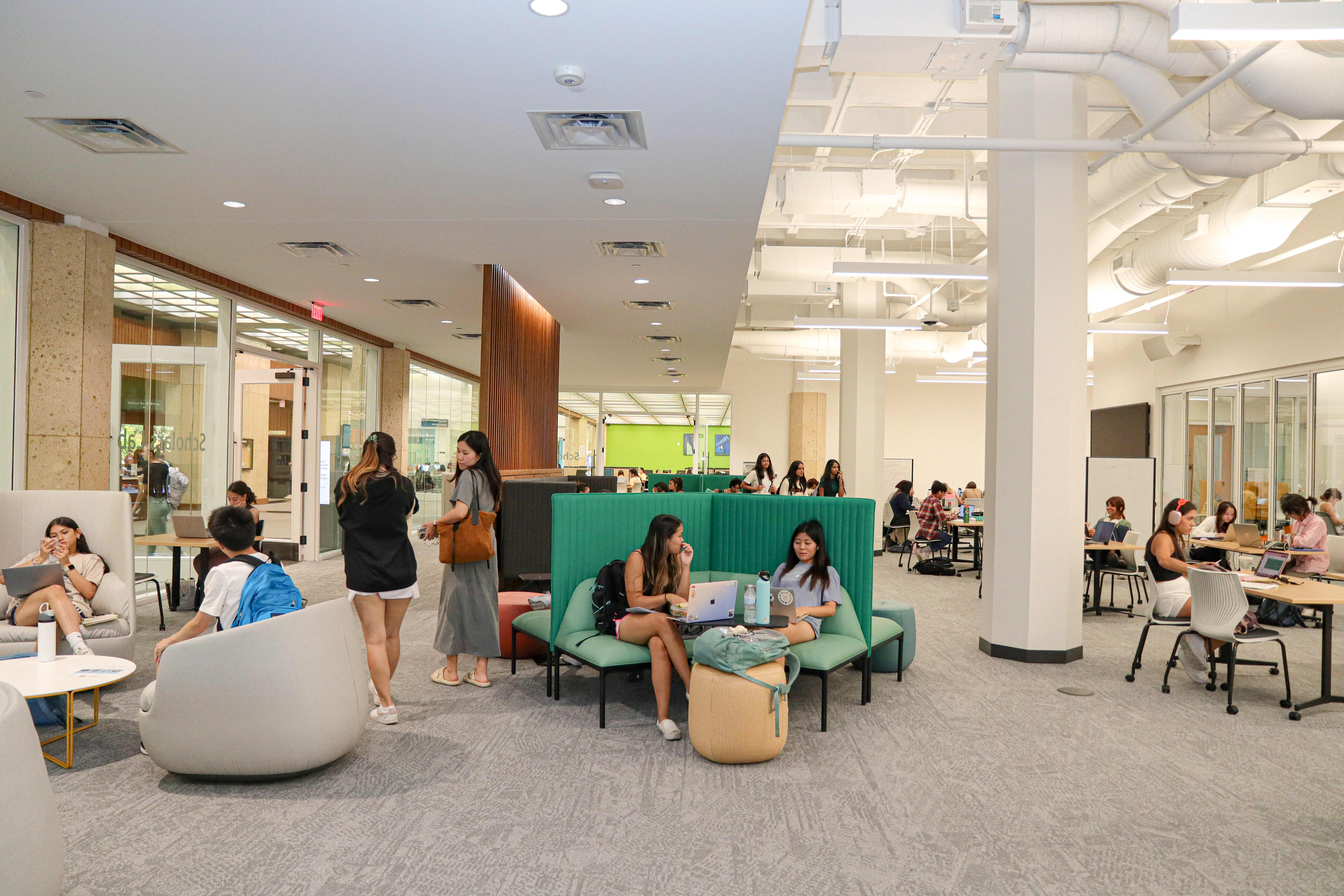
AUSTIN, Texas — The University of Texas Libraries announces the official opening of the highly-anticipated Scholars Lab on Thursday, October 5, 2023.
This technology-forward facility represents a significant step in supporting interdisciplinary research, collaboration and innovation for students, faculty and researchers of all levels at The University of Texas at Austin.
Located on the entry level of the Perry-Castañeda Library (PCL), the Scholars Lab is a manifestation of the university's commitment to digital scholarship and the integration of collaborative technologies into the academic landscape. This state-of-the-art space will serve as a vibrant community hub, fostering digital scholarship with the support of the University Libraries’ staff, resources and services.
The Scholars Lab is housed in the space previously occupied by the PCL's largest computer lab, which had ceded its utility due to evolving user behaviors. The new Lab offers an array of study and collaborative project areas tailored to various digital scholarship activities. Highlights include:
- A 32-seat Data Lab equipped with high-end Apple computers and specialized data analysis software for drop-in use and faculty/research-guided projects.
- Six medium-sized Project Rooms with audiovisual capabilities for meetings and collaborative work.
- Four smaller Huddle Spaces for group discussions and limited group work.
- Abundant collaborative and individual study areas featuring modular furniture, whiteboards, and quiet seating for focused research.
Assistant Director of Research Support and Digital Initiatives Jenifer Flaxbart, who was part of the project team, says the process for developing the Lab was done purposefully.
“The Scholars Lab is the culmination of almost a decade of prototyping, iteration and planning, informed by inputs from users of the Scholars Commons pilot space, and conversations with students, colleagues, and faculty involved in digital project work,” says Flaxbart. “This campus-wide resource fulfills a shared vision, introducing a creative hub for campus efforts at the intersection of engaged learning and digital scholarship.”
In addition to its innovative design, the Scholars Lab will host a variety of digital scholarship events and activities, including established programs like Digital Scholars in Practice, Data and Donuts, and Digital Humanities workshops. It will also introduce new, community-driven programming to enrich the academic experience.
The University of Texas Libraries has a history of adapting to technological advancements and changing user behaviors. From early adoption of online catalogs and internet access to the development of digital resources like the PCL Map Collection and the Human Rights Documentation Initiative, the Libraries continue to adapt technology for evolving scholarly practices. The Scholars Lab is the next step in the "Libraries as Platform" concept, integrating digital and analog resources to stimulate innovation across disciplines.
“I think the nature of learning has changed,” explains Vice Provost and Director of the Libraries Lorraine Haricombe, “as has our concept of space.”
“Each person who enters the Lab will have their own individual purpose, and so the space itself should perform a service function for every person, responding to their needs. The Scholars Lab is visible upon entering the building, but it also articulates and guides what happens inside the space.”
The project's inception aligns with the growing momentum of digital scholarship initiatives in academia and is a result of collaborative efforts involving campus faculty, researchers, and administrators. College of Liberal Arts Associate Professor Tanya Clement, instrumental in organizing the 2017 Humanities Intensive Learning and Teaching (HILT) conference and related DH@UT Pop-Up Institute, played a key role in bringing the Scholars Lab to life. Funding for the project was generously provided by the Office of the Vice Provost.
"Digital humanities scholars have few lab spaces on campus where we can create and collaborate,” says Clement. “The Scholars Lab will afford much-needed centralized space alongside opportunities to take advantage of expertise and training that will enhance innovation and community-building."
While the Scholars Lab is a valuable resource for advanced degree holders and researchers, it also offers substantial benefits to undergraduates. With an abundance of primary resources available at institutions across the university, such as the Benson Latin American Collection, the Harry Ransom Center, the Blanton Museum of Art and the Briscoe Center for American History, early career students will have improved opportunities to actively engage in collaborative projects and develop their own digital scholarship.
For more information, please contact Communications Officer Travis Willmann, traviswillmann@austin.utexas.edu.

